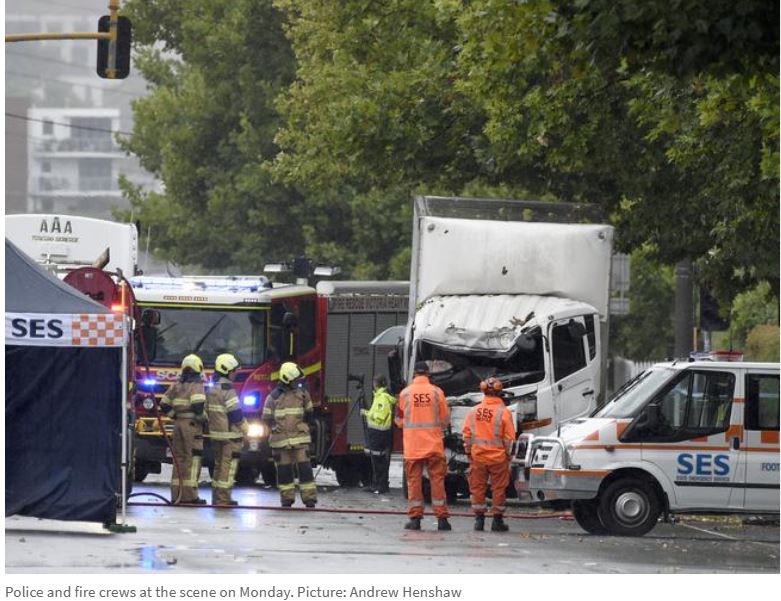A 67-year-old male driver lost his life when his small car was destroyed by a speeding truck.
The truck was allegedly stolen, and Police had failed to stop it using ‘stop sticks’.
Apart from the ‘stop sticks’ being old problematic technology, we need to look further as to why this life was wasted and what systematic failures contributed to the death.
The ability of police to intercept dangerous vehicles safely must be addressed, and new technologies capable of stopping a vehicle must be legitimately explored.
The CAA has long advocated for the introduction of the G-Tag (see https://caainc.org.au/the-g-tag-a-new-…community-safety/) to give Police the ability to disable a vehicle that poses an unacceptable threat to the occupants or the public more generally. Additionally, it will also reduce the danger to the police themselves, and that has to be a significant positive.
This technology will also play a critical role in any upsurge in terrorism.
Of equal importance, the circumstances of this crash and waste of life can be put squarely on the shoulders of the judiciary. Not the government but the judiciary.
It was reported that,
“A 40-year-old Deer Park man, who police allege was driving the truck, was taken to hospital with non-life-threatening injuries.
It was later revealed he was on bail for previous car theft and drug possession crimes and was due to face court in February after police charged him with another car theft, unlicensed driving and possessing drugs in November.”
If this life lost is not to be in vain, the establishment of nothing less than a Royal Commission to examine the role of the judiciary in these matters is well justified.
The accountability of the Judiciary is the point to be questioned, noting that in the lower courts, and in particular bail hearings, the presiding judicial officer is never named by the media. In contrast, the higher court Judges are regularly named as a matter of course. A legitimate form of accountability is lacking in the lower jurisdictions.
This lack of accountability, where the presiding officers can remain anonymous, must change so the public can know which judiciary members are responsible for bad outcomes.
The judiciary generally seems to hide behind the government, claiming they are only working within the laws the government provides. This is nonsense.
They must interpret the laws relevant to the circumstances of the matters before them.
An inquiry would expose the folly of the infection of the judiciary by the failed theoretical strategy called ‘Restorative Justice’ and given the regular failure of courts to hold perpetrators to account and protect the public, that infection has reached epidemic proportions, and people are dying as a result.
The pendulum has swung too far in favour of the criminals, and the rest of the community is indeed paying a very high price – with their lives.
The CAA invites the Government and the Opposition to urgently meet with the CAA to explore the G-Tag issue.
It is now a matter of life and death.


Speaking from personal experience, as the “victim” of multiple assaults and forced to apply for and be granted, Personal Safety Intervention Orders [PSIOs] in a situation where the Respondent is “First Nations” or Indigenous, they are allocated “unlimited” free legal aid to challenge and overturn all restrictions and boundaries, all in the “mission” of the abovementioned “Restorative Justice” often referred to as “Social justice” and to “rights the wrongs of Colonial invasion and endemic racism and discrimination against the rightful and original inhabitors”
These Legal Aid “warriors” will even move courts and “game” the system to try to arrange Magistrates who are sympathetic to their “oppressed clients”.
Forget the rights, safety, care and well-being of the actual “victims” as the narrative is always flipped and it becomes the Respondent who is then the central focus and “perpetual victim” who NEVER has to take responsibility or face ANY consequences for their illegal and violent actions.
The term, “Complex Mental Health Issues” is always applied and every Magistrate’s hearing is then flipped on to the Respondent and their “complex” needs and circumstances.
The Law is supposed to be blind but I can assure every Victorian, it is absolutely COLOURED!